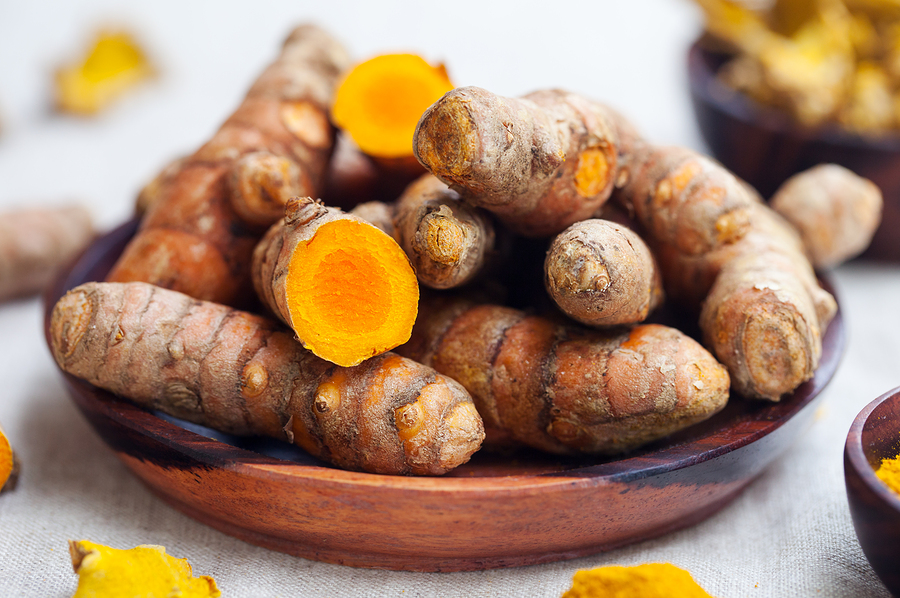The bright golden-orange spice in curry and mustard comes from turmeric, a tasty herb with numerous health benefits. Turmeric is an excellent source of iron, manganese and vitamin B6. Additionally, curcumin, an active component in turmeric, is known for its antioxidant and anti-inflammatory properties. In traditional Indian and Chinese medicine, turmeric has been used to treat allergies, heartburn, digestive ailments, and arthritis. Today, it’s gaining research attention for prevention and treatment of cancer, diabetes, and heart disease.
According to a recent study, a daily intake of turmeric helps blood vessels dilate fully. It also helps protect the arteries from inflammation – a primary cause of atherosclerosis (clogged arteries) and a risk factor for heart attack and stroke.
Including turmeric in your diet is easy to do: Sprinkle turmeric into soups, dressings, over meats, roasted veggies, scrambled eggs, or smoothies. To help your body maximize absorption of turmeric’s key compounds, add it to healthy fats (e.g., olive oil) while they are warming.
If heart disease runs in your family, or you have other risk factors, ask your health practitioner about taking a curcumin supplement. Ideally, look for one with high bioavailability, meaning it’s easy for your body to process and absorb from the digestive tract.
References
- Oliver, J.M., Stoner, L., Rowlands, D.S., et al., “Novel Form of Curcumin Improves Endothelial Function in Young, Healthy Individuals: A Double-Blind Placebo Controlled Study,” Jl of Nutrition and Metabolism (2016) Article ID 1089653, 6 pages, 2016. doi:10.1155/2016/1089653 Accessed: 9 Aug 2017: https://www.hindawi.com/journals/jnme/2016/1089653/
- Pizzorno, Joseph E. (2013). Textbook of Natural Medicine. St. Louis, MO Elsevier.
- Johnson, R.L., S. Foster, Low Dog, T. and Kiefer, D. National Geographic Guide to Medicinal Herbs: The World’s Most Effective Healing Plants. (2012) Washington, D.C.: National Geographic.

